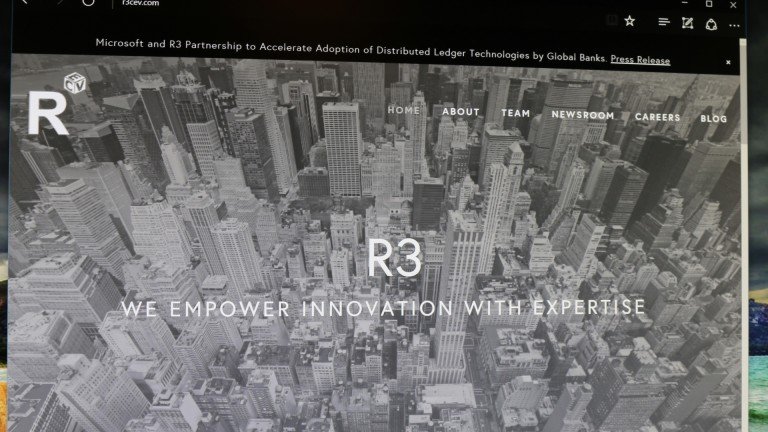Whatever you think of Bitcoin, the cryptocurrency gave rise to blockchain technology that could become a huge component in the way people do transactions in the future.
Microsoft has already started its blockchain plans with Azure program Blockchain as a Service (BaaS), and today the company made another step by announcing a strategic partnership with the R3 Consortium.
Formed two years ago, the R3 Consortium is made of a group of major banking giants and focuses on researching and developing blockchain solutions in the finance sector.
42 major financial companies (Barclays, Goldman Sachs, UBS, and Bank of America among them) are not part of the R3 Consortium, and now Microsoft has become a strategic partner.
As a partner, Microsoft will use its Azure platform to provide “cloud-based tools, services and infrastructure for R3 lab locations around the world, as well as dedicated technical architects, project managers, lab assistants and support services.”
Peggy Johnson, Microsoft’s executive vice president of global business development, said in today’s press release that:
With intelligent, cloud-based technology, R3 and member banks will experiment and learn faster, accelerating distributed ledger technology deployment… What’s more, our collaboration brings to light tremendous opportunities to rethink business processes and transform entire industries.
And the CEO of R3 added:
The Azure platform and intelligent cloud services bring advanced capabilities to this budding financial ecosystem, and the commitment by Microsoft will accelerate the adoption of distributed ledger technology around the globe and take our R3 Lab and Research Center offering to a new level of capability.
Microsoft is quickly bolstering its blockchain ambitions and has already secured numerous partnerships for its Blockchain as a Service (BaaS), which the company says gives the easiest cloud based blockchain solutions.
In a blog post for Azure today, Microsoft said that the R3 Consortium tested several competitors, such as IBM and Amazon before opting for Azure, because “it’s flexible, open, and comprehensive set of enterprise-grade grade services including Internet of Things (IoT), advanced analytics and machine-learning algorithms, security features, and developer tools.”
SOURCE: Microsoft







